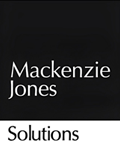
This article about leadership and team performance from Frances White, a Master Coach who works with organisational, team and individual development through many coaching interventions, follows on from LeaderBoard Series 1 where she discussed leadership models.
Frances has been collaborating with Julie Nicol, Manager of the Human Resources division at Mackenzie Jones over the last 3 years. Together they have brought together senior HR professionals in the UAE to discuss organisational life and leadership and provoke purposeful reflection on working styles and possibilities. Frances has kindly agreed to share a series of articles entitled The LeaderBoard with our HR network at Mackenzie Jones. Throughout the series, Frances encourages you to email her directly as interaction is so much more engaging and she can publish some of your responses and stories at a later stage.
Now to LeaderBoard Series 2:
I’m not on Instagram. I don’t really enjoy the thought that people will be judging my super-lovely photos. Social media of all kinds encourages “liking” or showing approval for each other’s posts, which drives high levels of anxiety about being good enough, also about belonging – we identify with the followers we have or those whom we see follow us, we identify with the profile we create.
Another important place you have identity and a sense of belonging is in your organisation, you work community. Google people are Googlers. At Twitter, they call themselves tweeps. At Zynga, you’re a zyngite, at Microsoft you’re a Microsoftie and so on. Identifying with your employer brand is a way of feeling connected and a stronger sense of belonging – which is very important for humans. It keeps us “up”, it stimulates the production of dopamine and oxytocin. We feel good about belonging and so we work harder and feel we enjoy it more. We expect to be scored here too – will our efforts be “liked” and appreciated? It matters to us.
In 2012, Donna Morris the SVP of HR at Adobe was asked what she would be doing to disrupt HR in Adobe. She responded that she planned to abolish the annual performance review format. Adobe did what many organisations did and still do, collecting examples of performance, conducting 360 evaluations then ranking and reporting on each employee. They found, when she instigated a proper evaluation of the review process, that they spent 80,000 hours of managers’ time and saw a downturn in engagement and spike in attrition afterwards. In other words, it cost a lot and drove people away. So Donna Morris asked people “what would inspire, motivate and value contributions more effectively?” and “How could we do this better?”
This resulted in an immediate change to a much more informal check-in process which is not documented but which must be at least quarterly and must cover expectations, feedback and development. Here’s how that went: 2 years later it was working brilliantly, morale was improved driven partly by the increase in real face to face feedback and connection. Morris was reported as saying that it changed how people felt about their job and opportunities in Adobe, with feedback being a really important element of that. This triggered a discussion about performance management within many organisations and I have listened with interest to the people’s stories.
It does appear that scoring people is a mechanism that is probably just overdone now. We score and rank our children from a very young age, we score and rank each other’s photos and stories daily, we parent competitively, we phone in to vote for people on various performance shows, we are very used to being scored and ranked – but it makes little positive difference to how we work together.
I also notice that people have way too many goals and KPIs that are meant to help them prioritise or focus but are unlikely to shape performance – rather people seem to be constantly overwhelmed and anxious. This must surely now be counter-productive. It also means that people often have goals and various stakeholders’ priorities that are in conflict with each other, so they are torn. They say that they feel they cannot achieve everything in balance or in time.
Quarterly check-in conversations sound great if managers have the skills and make the time. At Adobe, they invested in training managers and they appear to have developed a culture of feedback being invited and accepted as a learning mechanism. This appears to place a lot of emphasis on the managers to engage in good conversations, which is certainly no worse than the old system. However, still there is an opportunity for organisations to realise that what really needs to change is the ability and opportunity for people just to make the time to really connect in good conversation.
Having invested much time researching and developing programmes of conversational leadership, this really interests me. Added to this, I spend a lot of time working with teams as a team coach and I have concluded that a great and agile way to deliver magnificent performance management is to combine these elements.
Make managing performance a shared face to face team responsibility:
- Have great team conversations about performance and feedback throughout the year
- This means the learning, inspiration, motivation and valuing of contribution is less reliant on one manager and more likely to grow as a collective culture throughout the business
- It strengthens the sense of community and identity within the team, which is likely to motivate and inspire great performance as well as raising levels of feel-good neuro-chemicals
- It encourages greater accountability as it’s a smaller group and greater visibility would be less risky and also it’s harder to hide
- It would always be more relevant and up to date as the team would always be able to adjust their shared view of what is happening and their shifting priorities in a changing landscape
- It could be a simple storytelling, a sharing of everything meaningful, a sharing of problems and resolving things together – and it can include other learning elements if the team chooses
- It builds and challenges trust in the team
This has therefore been one of my recommendations for organisations – use the team as the best unit for promoting the highest levels of learning, motivation, engagement and evaluation of how the team and its members are performing and contributing to the shared goals in line with the organisational purpose.
Of course, this does presuppose that teams have good enough levels of trust, relationship and sense of identity and membership – but working with teams on these things is actually something that will enhance performance anyway, so combining these agendas seems entirely appropriate and sensible. Develop the team and enable the team to be developing itself at the same time; through some team coaching which can be delivered in many ways. I am working with an AI developer that has built an online team coach product. I have also developed learning programmes that enable teams to develop great feedback and learning together in conversational ways. I am team coach to leadership teams who then provide team coaching to spread the techniques and habits of learning, curiosity and feedback into the culture. These are just a few important aspects I think for the next phase of agile-like people management and engagement.
So, take ten minutes right now to think about your own performance and how your team might view that. Wonder about what if that were a conversation in an open and trusting forum every couple of months or so with your whole team engaged in that. Consider how you might, as a team, find yourselves shaping things differently, dealing with shared shifting priorities differently, getting your boss to lead you a bit differently perhaps … what might be possible for you? Rather than just a score, a rating, a ranking.
You can send me your stories and thoughts to Frances@franceswhitecoaching.com I’ll be here to listen and not judge nor evaluate.
Frances
. . . . . . . . . . . . . . . . . . . . . . . . . . . . . .
About Frances White
A Masters from Ashridge in Coaching, 25 years’ experience and a background in commercial and marketing disciplines, Frances brings business-focused, psychology-based thinking, learning and support to her clients and global HR communities. She works with and speaks to individuals, teams and communities globally, she facilitates and coaches across all industries and age groups. Frances has a lifelong passion for learning and laughing which is evident in how she designs and delivers her own blend of provocative and stimulating events.





